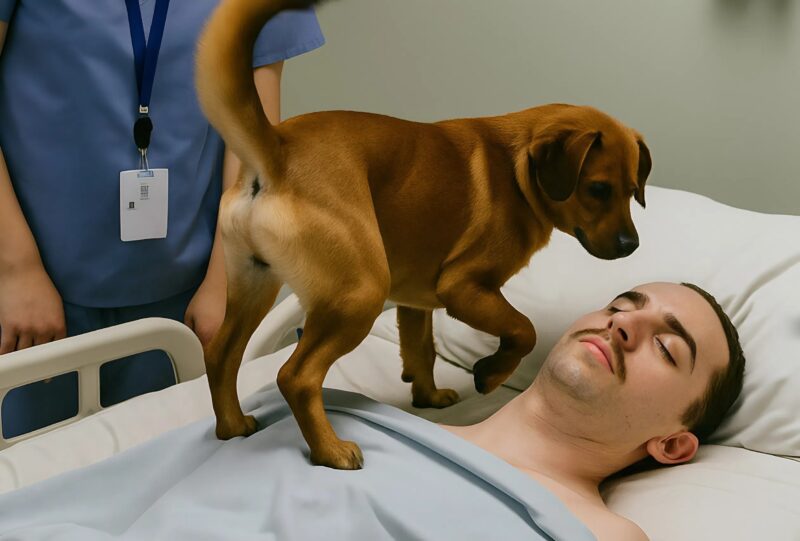Before turning off the life-supporting devices that were keeping the young officer alive, the doctors let his dog say farewell, but then something unexpected happened
For more than a month, the police officer had been laying in the intensive care unit. Many of the equipment attached to his body flickered silently in the room’s low light. A serious traumatic brain damage from a war wound sustained while on service was the horrifying diagnosis. He never regained consciousness after losing it. Despite the doctors’ best efforts, optimism was evaporating daily.
The medical staff had to make a tough choice that day: they would turn off the life-support systems if there were no signs of recovery. They had already told the family. They let his faithful friend, a small dog named Lari, enter the room before they made that awful move.
Lari had already served with the officer in the K9 team while still a puppy. They had a lot in common: mutual trust, training, night shifts, and danger. After being carried into the antiseptic chamber, the dog cautiously moved forward, his large eyes gleaming with perplexity and concern, and his ears relaxed.
Lari’s demeanor altered when he saw his master, who was standing still. The dog froze, remained motionless, and examined the well-known face intently. After a moment, he started barking loudly, sharply and insistently, as though he was urging his owner to awaken. Then, as if it were just another reunion after a shift, he leaped directly onto the bed, smelled his owner’s face, and wagged his tail with unexpected vigor.
Lari continued to lick the man’s hands and bark before laying down on his chest and rubbing his entire body against him in an apparent attempt to share his warmth. Something odd and surprising occurred at that very moment
The monitors began glowing as though they had detected an unidentified signal, and the medical equipment abruptly beeped sharply. His respiration altered, and his heart rate rose.
As she hurried into the room, the nurse said, “What’s going on?”
Panicked, the physicians rushed in. They were astounded to see the first distinct indications of spontaneous breathing on the screen.
After blinking, the policeman attempted to move his fingers. As though summoning him back to full life, the dog brushed his nose on his cheek and barked joyfully.
Nobody knew how to explain this phenomena; maybe the dog’s presence, the voice, and the familiar scent had activated the brain’s innermost processes, bringing back memories and the wish to live.
The officer recovered consciousness despite being feeble, and for the first time in a long time, his eyes were fixed on the happy Lari. He even appeared to make an effort to grin.
The doctors looked at each other, still in disbelief, and one of them stated in a low voice:
— Alright, friend It appears that letting him say farewell wasn’t in vain.









